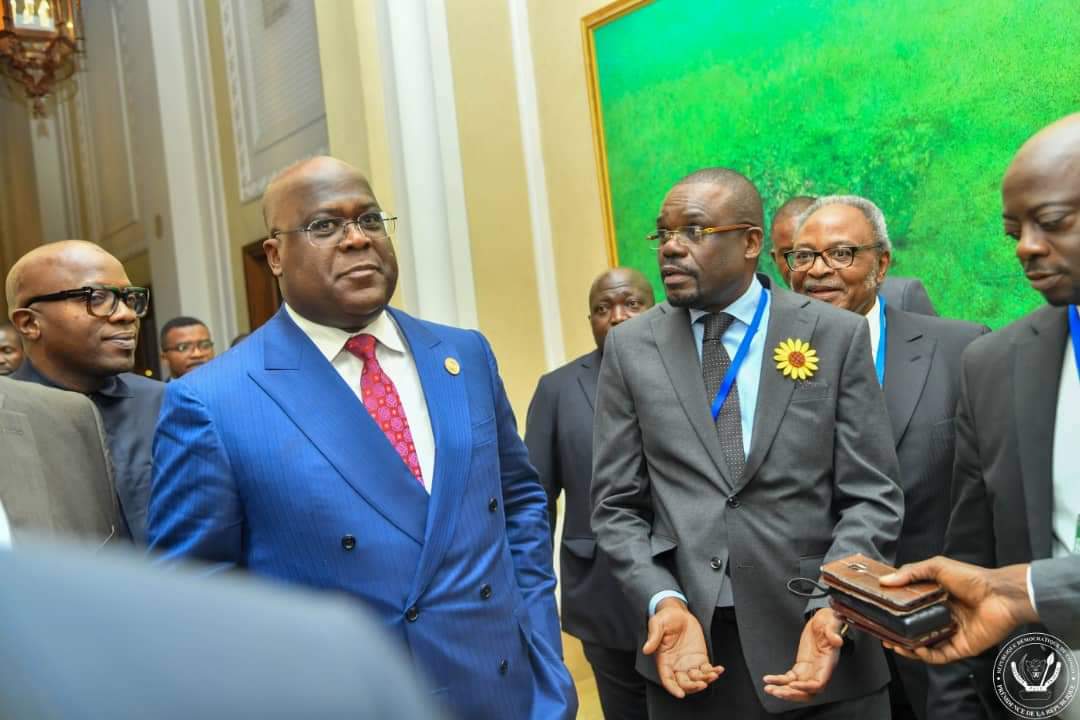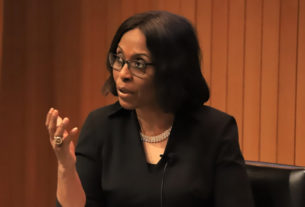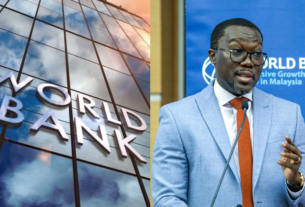Elected on 18 February by African heads of state at the 36th African Union (AU) summit in Addis Ababa, the Congolese doctor took office on Monday 17 April. He had bilateral exchanges with the deputy chairperson of the AU Commission, the Rwandan economist, Monique Nsanzabaganwa.
Dr. Jean Kaseya was elected over the former interim director of CDC Africa, Ahmed Ogwell Ouma of Kenya, and Magda Robalo Correia E Silva, former minister of health of Guinea-Bissau. The recruitment process took about a year and received 180 applications. Dr. Jean Kaseya was nominated by the Congolese government. “With this vote, the DRC has signed a great diplomatic victory by snatching this post. It is the most important permanent position after the passage of Gerard Kamanda as secretary general of the defunct OAU in 1972. It is also the proof that the DRC has regained its place in this institution from which it was excluded from the right to vote”, the Presidency of the Republic had announced.
First Director General
In his new position, Dr. Kaseya has a four-year contract, based in Addis Ababa, with a one-year probationary period. The contract can be renewed once.
Dr. Jean Kaseya is the first director general of the African Centers for Disease Control and Prevention (CDC). His predecessor, Cameroonian-born Dr. John Nkengasong, was only director. Indeed, nearly a year ago, African heads of state voted to allow the CDC to move from being a specialized technical institute of the African Union to a public health agency. African CDCs previously operated as a technical division of the AU. They are now funded by the AU as an independent organization. This gives the agency more authority, flexibility, and speed to respond to public health emergencies. The change also gives the new executive director more authority. The director general will report to the chairperson of the African Union (AU) and will have the power to convene heads of state on public health issues, which was not the case with a director. The director had to write memos and have them reviewed by a hierarchy, which caused delays in the centers’ response to outbreaks. Now, the CDC director can deploy staff more quickly to respond to outbreaks. African CDCs will continue to report to the AU Commission, but on a quarterly basis, similar to the way the World Health Organization (WHO) reports to the United Nations.

Experienced physician
Dr. Jean Kaseya has more than twenty years of experience in public health in the DRC and internationally. In his new role, he is responsible for leading CDC in its quest to achieve global health security for people across Africa. This includes strengthening disease surveillance, working with countries to strengthen health systems, and responding to health emergencies.
Dr. Jean Kaseya worked for nine years at UNICEF, two years at Gavi, the Vaccine Alliance, as well as at the World Health Organization and the government of the Democratic Republic of Congo, where he was responsible for routine immunization and a senior advisor to former Congolese President Laurent-Désiré Kabila. He most recently worked for the Clinton Health Access Initiative, where he was senior country director for the DRC and global team leader for work on the African Health Diagnostics Platform with the European Investment Bank.
New Deal
In his nomination document outlining his vision, according to the specialized website devex.com, Dr. Jean Kaseya talks about what he calls the “New Deal,” which aims to create a “new management culture” within the organization, while continuing to implement the CDC’s new public health order for Africa, launched by its first leader, Dr. John Nkengasong. The new public health order is rooted in the principles of continental ownership of health security. “A technically strong Africa CDC that has leading experts on staff, is adequately funded and budget efficient, has reliable rapid response teams on the ground in times of crisis, and contributes to building a resilient Africa that can effectively detect, prevent, and control diseases for the achievement of [universal health coverage], the SDGs, and the AU’s 2063 agenda” will be at the heart of its mandate, writes the Congolese doctor. The latter, devex.com continues, noted that Africa CDC has a large number of vacancies, “cumbersome” administrative processes and weak financial and logistical management that includes “a lack of internal controls, inadequate financial rules and accountability mechanisms, and a suboptimal procurement process.”

A tax to fund health
In addition, we report, Dr. Jean Kaseya noted that in 2020, Africa CDC used only 39% of its operational budget from donors, despite the ongoing COVID-19 pandemic and other health emergencies. He also wrote that Africa CDC suffers from a lack of accountability – it currently operates without a strategic plan or publicly available annual reports for 2021 or 2022, which are needed for the agency to learn from its mistakes and correct its course. This situation, according to the new executive director, leads to a loss of confidence in Africa CDC. In addition, it is reported, to enable CDC to become financially self-sufficient, Dr. Jean Kaseya would like the continent to implement an “African air tax” – a tax on airline passengers to finance Africa CDC’s health support to countries. This tax, he says, could generate up to $300 million annually.
During his first 100 days in office, he plans to talk with partners and staff to understand needs, publish a strategic plan and past annual reports, with the goal of making decisions to quickly correct deficiencies and restore the organization’s credibility. He also plans to hold a replenishment meeting to raise funds in hopes of “developing a new resource mobilization path.



